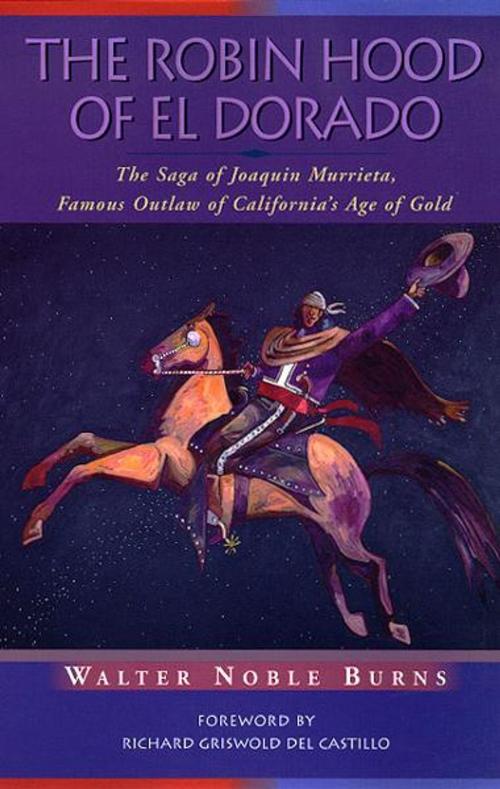The Robin Hood of El Dorado: The Saga of Joaquin Murrieta, Famous Outlaw of California's Age of Gold
Fiction & Literature, Historical| Author: | Walter Noble Burns | ISBN: | 9780826352163 |
| Publisher: | University of New Mexico Press | Publication: | August 1, 1999 |
| Imprint: | University of New Mexico Press | Language: | English |
| Author: | Walter Noble Burns |
| ISBN: | 9780826352163 |
| Publisher: | University of New Mexico Press |
| Publication: | August 1, 1999 |
| Imprint: | University of New Mexico Press |
| Language: | English |
First published in 1932 and never reprinted since, this historical drama re-creates the life and adventures of Joaquin Murrieta, a Hispanic social rebel in California during the tumultuous Gold Rush. Published during the Great Depression, at a time of mass deportations of Hispanos to Mexico, this sympathetic portrait of Murrieta and Mexican Americans was a unique voice of social protest. The author romanticizes the pastoral society of Mexican California into which Murrieta was born and introduces the protagonist as a quiet, honest, unpretentious, and reserved resident of Saw Mill Flat, California. But the rape and murder of his wife, Rosita, by racist Anglo miners unleashes his vengeful rage. Picking up his pistols, Murrieta tracks and kills Rosita's murderers and defends Hispanos against violence and dispossession by rampaging gold rush miners. Richard Griswold del Castillo discusses the significance of Murrieta to twentieth-century Mexican Americans and Chicanos and of Burns's history to contemporary understanding of the mysterious social bandit.
First published in 1932 and never reprinted since, this historical drama re-creates the life and adventures of Joaquin Murrieta, a Hispanic social rebel in California during the tumultuous Gold Rush. Published during the Great Depression, at a time of mass deportations of Hispanos to Mexico, this sympathetic portrait of Murrieta and Mexican Americans was a unique voice of social protest. The author romanticizes the pastoral society of Mexican California into which Murrieta was born and introduces the protagonist as a quiet, honest, unpretentious, and reserved resident of Saw Mill Flat, California. But the rape and murder of his wife, Rosita, by racist Anglo miners unleashes his vengeful rage. Picking up his pistols, Murrieta tracks and kills Rosita's murderers and defends Hispanos against violence and dispossession by rampaging gold rush miners. Richard Griswold del Castillo discusses the significance of Murrieta to twentieth-century Mexican Americans and Chicanos and of Burns's history to contemporary understanding of the mysterious social bandit.















